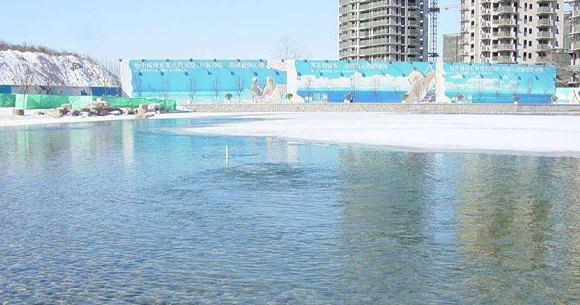industrial flocculant
The Role of Industrial Flocculants in Water Treatment
In the world of industrial processes, water plays a crucial role. Whether it is in mining, wastewater treatment, or food production, water is often an essential resource. However, the presence of suspended particles and colloids can hinder the efficacy of water use, leading to the need for water treatment solutions. One of the most effective methods to manage water clarity and quality is through the use of industrial flocculants.
Understanding Flocculants
Flocculants are substances that promote the clumping together of particles in a liquid to form larger aggregates known as flocs. These flocs are then easier to remove from the water through processes like sedimentation or filtration. Flocculants are commonly used in a variety of industries, including mining, paper manufacturing, and municipal wastewater treatment.
There are two main types of flocculants cationic and anionic. Cationic flocculants carry positive charges and are often used in applications where negatively charged particles are prevalent. Conversely, anionic flocculants carry negative charges and are effective in situations where there are positively charged contaminants. Additionally, non-ionic flocculants are also available and are neutral in charge, making them suitable for a wide range of applications.
Applications of Industrial Flocculants
1. Wastewater Treatment One of the most significant applications of flocculants is in wastewater treatment facilities. These facilities utilize flocculants to aid in the removal of suspended solids from industrial effluents. By promoting faster sedimentation, flocculants reduce the overall volume of sludge and improve the efficiency of the treatment processes.
2. Mining In the mining industry, flocculants are used to settle and recover valuable minerals during the process of mineral extraction. They help in separating ores from waste materials, enhancing the purity of the extracted minerals and minimizing environmental impacts.
industrial flocculant

3. Paper Manufacturing The paper industry benefits from flocculants during the pulping and papermaking processes. Flocculants assist in the retention of fibers and fillers during the manufacturing process, ensuring higher quality paper with reduced waste.
4. Food and Beverage Industry In the food and beverage sector, flocculants play a role in clarifying juices and beverages, enhancing the overall quality of the end product. They help in removing particulates, which results in clearer products and improved taste.
Environmental Considerations
While industrial flocculants are effective, their use raises some environmental concerns. Certain synthetic flocculants can contain harmful chemicals that may leach into the environment if not properly managed. This concern underscores the importance of using biodegradable and environmentally friendly alternatives whenever possible.
Natural flocculants, derived from plant materials or biopolymers, are gaining traction as safer alternatives. These options are less harmful to aquatic ecosystems and can provide effective results without the negative implications of synthetic chemicals. As industries continue to face increasing regulatory pressure regarding environmental sustainability, the shift towards natural flocculants is expected to grow.
Conclusion
Industrial flocculants play a critical role in enhancing the efficiency of water treatment processes across various sectors. Their ability to improve sedimentation and clarity contributes to more effective wastewater management, resource recovery in mining, and high-quality production in the food and paper industries. However, the environmental impact associated with certain chemical flocculants necessitates a careful approach to their use, favoring biodegradable options to mitigate risks to ecosystems. As industries evolve, the demand for effective and sustainable water treatment solutions, including the use of industrial flocculants, will remain paramount in promoting both operational efficiency and environmental responsibility. The future of water treatment technology looks bright as innovations continue to emerge, paving the way for a cleaner, more sustainable world.
-
Premium Isothiazolinones | Broad-Spectrum Biocidal SolutionsNewsAug.28,2025
-
LK-319 Special Scale And Corrosion Inhibitor For Steel Plants: Advanced Solutions for Industrial Water SystemsNewsAug.22,2025
-
Flocculant Water Treatment: Essential Chemical Solutions for Purification ProcessesNewsAug.22,2025
-
Isothiazolinones: Versatile Microbial Control Agents for Industrial and Consumer ApplicationsNewsAug.22,2025
-
Scale Inhibitor: Key Solutions for Water System Scale PreventionNewsAug.22,2025
-
Organophosphonates: Versatile Scale Inhibitors for Industrial Water SystemsNewsAug.22,2025





